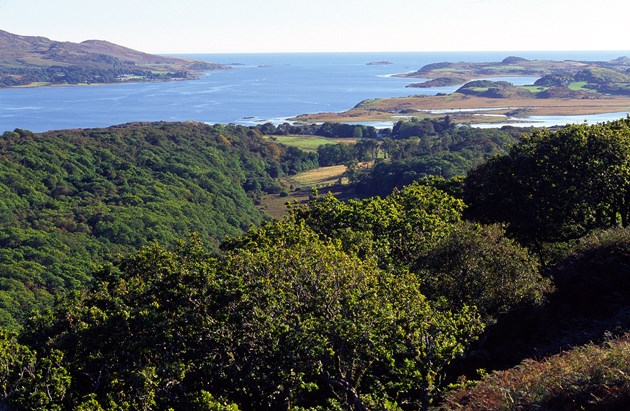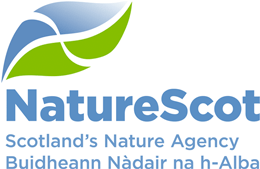15 June, 2023
New report shows natural capital in Scotland holding steady

A new NatureScot report published today reveals the value of Scotland’s plants, wildlife, air, water, and land – known as natural capital – has held steady after increasing for the last two decades.
Scotland’s Natural Capital Asset Index (NCAI) assesses the quality and quantity of the country’s nature through assessing land-based habitats and their contributions to human wellbeing. Our natural capital has shown signs of recovery the past 20 years, after decades of decline between the 1950s and 1990s due to human activities such as increases in peat drainage and uses of pesticides.
Natural capital is the stock of Scotland’s plants, wildlife, air, water, and land providing benefits to the people and businesses across the country. Assessing the monetary value of natural capital is one way to show how nature provides many benefits to everyone in their everyday lives. Many of these benefits are not accounted for in traditional economic markets, ultimately leading to a long-term degradation of the environment. Natural capital is a way to represent and make sure nature is included in decision-making and makes the invisible benefits and value of nature visible.
This year’s study shows woodland habitat has improved by 1.6 percentage points, while coastal, heathland, mires, bogs and fens have remained stable, and grasslands have decreased by 2 percentage points. Agricultural land has increased by 3.5 percentage points, but this is against a long-term decline.
Biodiversity Minister Lorna Slater said: “Scotland has some of the most stunning natural landscapes in the world, and is home to many rare and diverse species. The beauty and diversity of our natural world is important in of itself, but it also has an undeniably positive impact reducing climate change, improving our environment, and contributing to our health and wellbeing, culture and economy.
“That’s why we must do everything we can to protect it. The Scottish Government has increased public investment in nature restoration and developed principles for responsible private investment. We will strive to make Scotland the best place to invest in natural capital for the benefit of the environment, our people and our economy.
“Later this year we will publish a delivery plan to support our new Biodiversity Strategy, which sets out a long-term ambition and vision to restore Scotland’s natural environment. It is designed to deliver landscape-scale, transformative change and will be backed by evidence and underpinned by statutory targets for nature recovery.”
Francesca Osowska, NatureScot Chief Executive, added: "It’s easy to take nature for granted, but Scotland’s natural capital is vitally important for our country’s economy and our quality of life, providing us with food, water, natural flood defences and crop pollination. The growing nature sector alone employs nearly 200,000 people in Scotland.
“There are signs that investment is growing too, not least because at NatureScot, we are working to protect and enhance our wildlife and habitats through important government-funded programmes like the £65m Nature Restoration Fund and the £250m Peatland Action fund, as well as through stakeholder and partnership projects like Species on the Edge and the Scottish Marine Environmental Enhancement Fund. There remain many challenges, not least from climate change, but we are committed to tackling these to make Scotland an even better place for future generations.”
To read the full Natural Capital Index, see Scotland’s Natural Capital Asset Index – 2023 – Update Summary.
A complementary report is being published by the Scottish Government today as well. A summary of the report can be found here. The Scottish Natural Capital Accounts are experimental statistics produced in partnership with the UK Office for National Statistics and the Rural & Environmental Science and Analytical Services team in Scottish Government. A supplementary report to the statistical publications, Recognising the Importance of Scotland’s Natural Capital, co-produced by NatureScot and the Scottish Government, has also been published today.
Contact information
- Name
- NatureScot Media
- Telephone
- 0131 316 2655
- media@nature.scot
Notes to editors
The NCAI is a composite index which tracks changes in the capacity of Scotland’s terrestrial ecosystems to provide benefits to people. It is not a monetary value but is composed in a way which reflects the relative contribution of habitats to human wellbeing.
The capacity of ecosystems to provide benefits fluctuates over time due to changes in habitat quantity and quality. Habitat quantity is tracked using what we know about land cover change in Scotland. Habitat quality is tracked using 38 separate indicators which rely on datasets gathered by a range of public organisations and citizen science schemes.
The index tracks the changes in Scotland’s land-based ecosystems and shows the benefits of natural capital through provisioning services such as crops; regulating and maintenance services such as pollination and water filtration; and cultural services such as recreation and aesthetics.
NatureScot is Scotland's nature agency. We work to enhance our natural environment in Scotland and inspire everyone to care more about it. Our priority is a nature-rich future for Scotland and an effective response to the climate emergency. For more information, visit our website at www.nature.scot or follow us on X at https://x.com/NatureScot
’S e NatureScot buidheann nàdair na h-Alba. Bidh sinn a’ neartachadh àrainneachd na h-Alba agus a’ brosnachadh dhaoine gu barrachd suim a chur ann an nàdar. Tha e mar phrìomhachas againn gum bi nàdar na h-Alba beairteach agus gun dèilig sinn gu h-èifeachdach le èiginn na gnàth-shìde. Tha an tuilleadh fiosrachaidh aig www.nature.scot no air X aig https://x.com/NatureScot

